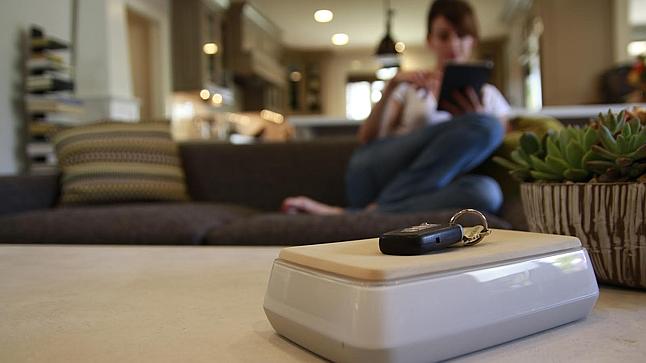
The Swann security system supports its own hardware, but also third-party products such as the Philips Hue Lighting system and the Nest thermostat (as well as its own). When the chief executive of Swann Security popped into see the chief technology officer a year or two ago, the resulting conversation changed the strategic direction of the company.
Swann sold security cameras and other sensors through retailers such as Harvey Norman and Dick Smith. It was a good business that was enjoying a period of sustained growth.
The company was founded by David Swann in the basement of his family home in Melbourne in the late 1980s. Swann had grown to presence in more than 40 countries and 70 per cent of its revenue is derived from the US.
But the business model had not changed for two decades – 100 percent of the companh revenue was still one-off revenue from the sale of Swann products, mostly in bricks-and-mortar retailers.
Swann Security’s Geoffrey Wanless “We had no idea who our customers were,” says CTO Geoffrey Wanless. The CEO asked Wanless about threats and opportunities and what might disrupt the business, which was then enjoying a period of sustained growth.
Those strategic conversations led to a decision to reinvent Swann as a subscription-based service.
?We realised that we weren?t in the business of selling security cameras, we were in the business of selling security and what customers were trying to buy was peace of mind,? Wanless says.
A security camera did a fine job of recording a burglary but it did not prevent it from happening. Meanwhile, traditional security monitoring services were expensive ? between $40 and $70 a month ? and also inflexible with long contract periods of two to three years.
Swann?s new offering is likely to be disruptive to incumbents in the security industry because of the low price, with the opening price set at just $US9.95 a month, and the flexibility that allows consumers to dip in and out in a pay-as-you-go model.
?You might have someone at home most of the time but want security while you?re away for the long weekend,? Wanless says. ?You can ask to be monitored from 9am Friday through to 9pm on Easter Monday and pay just for that time.?
He explains the reason Swann can be so flexible is because of the capability of Zuora, the third-party software it uses to manage the subscriptions. Zuora is a cloud software provider used to underpin subscriptions at companies ranging from Fairfax Media (publisher of BRW) to Deloitte. Wanless was speaking at a press lunch hosted by Zuora.
The idea is to link home security hardware with the internet of things, so consumers can receive notifications on their smart phone or even upgrade to professional monitoring. The rules engine means you can configure exactly what you would like to happen, whether it is an alert to your smartphone for a leaking dishwasher or a broken window or to automatically call emergency services if the smoke detector goes off or gunshots are heard inside the home.
The data is stored on the cloud in Australia, Europe or the US, depending where the customer is based, and Wanless says the company complies with the Data Protection Act. He says the video is encrypted and customers are forced to set a strong password when they register.
Wanless says there is potential to expand into the aged care market, targeting the vast majority of elderly people who still live at home alone. For example, you can set a sensor on the fridge to notify adult offspring if there is a deviation to the morning tea making routine. The basic package covers up to four properties, with the intention being that you can include your parents and in-laws on the same plan.
The other disruptive element is the compatibility with the home automation market. Wanless says this is important because daily utility will make the app ?stickier? and churn rates lower.
Read the complete story below…
Source: brw.com.au
